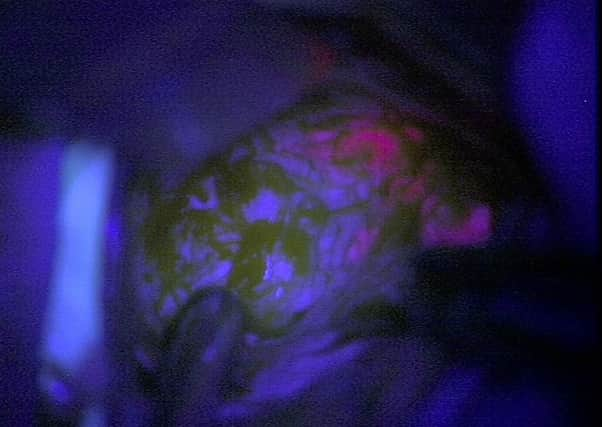Yorkshire '˜postcode lottery' of tumour treatment


The Brain Tumour Charity is calling for all patients to be offered 5-Aminolevulinic Acid or 5-ALA, which is administered before surgery to remove certain types of aggressive brain tumour.
The drug makes tumour cells glow under fluorescent light so enables surgeons to remove more cancerous tissue and almost doubles a patient’s chance of being left with no detectable brain tumour cells.
Advertisement
Hide AdAdvertisement
Hide AdStudies have shown that patients given 5-ALA ahead of surgery for glioblastoma – the deadliest form of brain tumour in adults – are likely to survive for longer with no recurrence than those who are operated on without the drug.
However patients face a postcode lottery over whether they will be offered it because there are no national guidelines on its funding – drug watchdog the National Institute for Health and Care Excellence (NICE) has not issued guidance for its use and it is not commissioned nationally through NHS England.
Instead, requests for its use have to be considered individually by the hospitals trust where the patient is being treated.
But a survey by consultant neurosurgeon Stephen Price, has revealed that NHS trusts in some areas will not pay for the drug under any circumstances while others have restricted its use to a limited number of patients.
Advertisement
Hide AdAdvertisement
Hide AdPatients being treated in Leeds can receive it, but those in Hull or Sheffield do not.
There is no cure for glioblastoma and people with the disease survive for around 15 months on average. Around half of all UK patients with this form of cancer are judged suitable for surgical resection – an operation to remove as much of their tumour as possible.
Mr Price, who introduced 5-ALA fluorescence guided surgery to Addenbrooke’s Hospital in Cambridge and teaches other surgeons how to use it, said there were initially barriers to its widespread administration around the UK but these had largely been resolved.
“The biggest issue now is the cost of the drug,” he added.
“Requests for the use of 5-ALA have to go through a trust’s Drugs and Therapeutics Committee.
Advertisement
Hide AdAdvertisement
Hide Ad“Even though it’s a one-off drug, there seems to be in the NHS at the moment this barrier that doesn’t allow any new treatments through.”
The Brain Tumour Charity has created a new Patient Guide which includes information about the drug and encourages patients to ask their specialist for it.
Emma Tingley, director of services and influencing for The Brain Tumour Charity, said: “Everyone diagnosed with a brain tumour should have access to the best possible treatment, regardless of where they live.
In the case of patients undergoing surgery for glioblastoma, the evidence shows quite clearly they should be offered 5-ALA.”